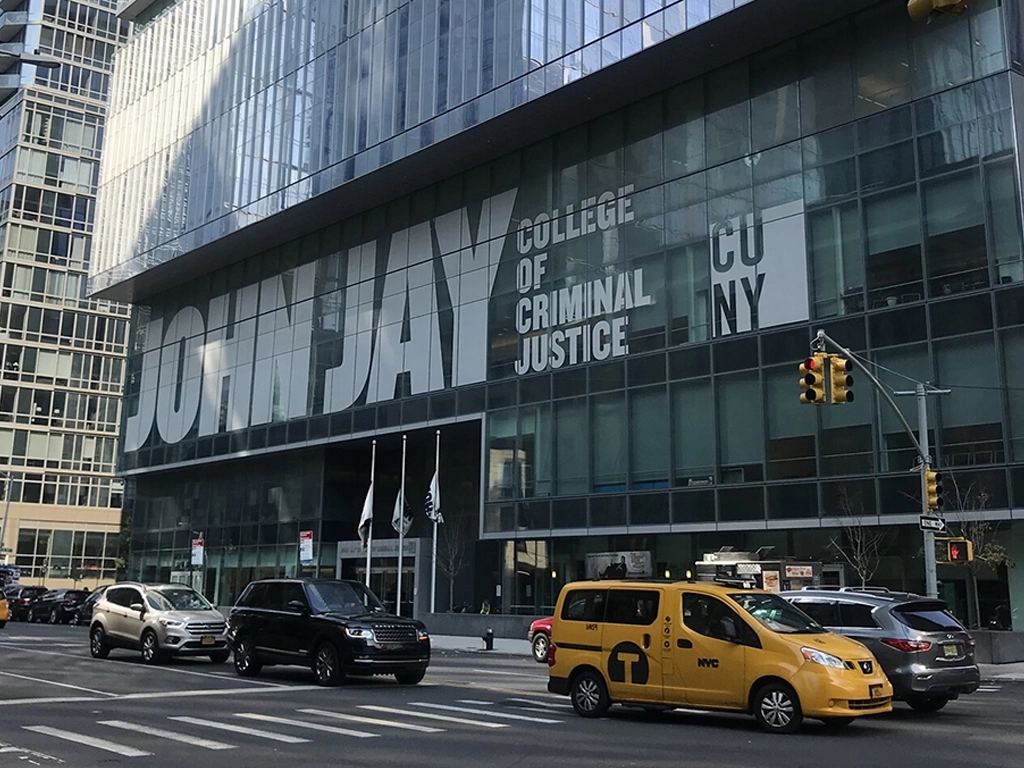About the Program

About the John Jay College of Criminal Justice
John Jay College is part of the City University of New York, one of the country’s great public university systems. The campus is located in midtown Manhattan, on 59th St. near Columbus Circle, a short walk from a dozen subway lines. It is easily accessible from all five boroughs, as well as from New Jersey and the northern suburbs.
To accommodate students with full-time jobs, all graduate classes meet in the evening, for one two-hour session per week. Twelve courses are required for graduation. Full-time students take three classes per semester, so they typically finish in two years. Students with heavier professional or personal obligations may choose to attend part-time, taking fewer than three classes per semester and taking correspondingly longer to graduate. Tuition and fees are charged per credit, so the total cost is the same.
Graduate classes are offered in person.

About the Masters in Economics
The John Jay MA in Economics is one of a handful of economics graduate programs that is focused on heterodox, or non-mainstream, approaches to understanding capitalism. Unlike most economics programs, we are unapologetically committed to a progressive, policy-oriented approach, and to a diversity of schools of thought. While the John Jay program offers the same core economics training as in other graduate programs, it is one of the few places where Marx, Keynes and other great radical thinkers in economics are also a central part of the curriculum. At John Jay, you will take rigorous courses on Microeconomics, Macroeconomics and Statistics, but you will also be able to study Economic History, Political Economy of Race and Gender, Marxist Political Economy, Feminist Economics, Post Keynesian Macroeconomics, and Community Economic Development.
We are also one of the most diverse economics programs in the country. Economics is one of the least diverse social sciences — nationally, only 1
percent of all Economics M.A. students are Black, only 3 percent are Latinx, and most are men. But two-thirds of the graduates of the John Jay M.A. in Economics program have been Black and Latinx, and over half have been women. Our students come from Africa, Latin America and Asia as well as from the US.
We’re a new program, only four years old, but we already have a strong track record and culture. Our students and faculty see the study of economics not as an end in itself, but as a way of taking on the most pressing issues in our society. In our first class of graduates, the topics of capstone essays included: the causes of the 2018 rice inflation in the Philippines; the economics of private service contracts in public prisons; the case against the West African CFA franc; the resource curse and oil exploration in Guyana; the nineteenth century gold standard as tool of ruling class power; and the economics of redlining in mid-20th century US housing markets.
About the Masters in Economics
The John Jay MA in Economics is one of a handful of economics graduate programs that is focused on heterodox, or non-mainstream, approaches to understanding capitalism. Unlike most economics programs, we are unapologetically committed to a progressive, policy-oriented approach, and to a diversity of schools of thought. While the John Jay program offers the same core economics training as in other graduate programs, it is one of the few places where Marx, Keynes and other great radical thinkers in economics are also a central part of the curriculum. At John Jay, you will take rigorous courses on Microeconomics, Macroeconomics and Statistics, but you will also be able to study Economic History, Political Economy of Race and Gender, Marxist Political Economy, Feminist Economics, Post Keynesian Macroeconomics, and Community Economic Development.
We are also one of the most diverse economics programs in the country. Economics is one of the least diverse social sciences — nationally, only 1 percent of all Economics M.A. students are Black, only 3 percent are Latinx, and most are men. But two-thirds of the graduates of the John Jay M.A. in Economics program have been Black and Latinx, and over half have been women. Our students come from Africa, Latin America and Asia as well as from the US.
We’re a new program, only four years old, but we already have a strong track record and culture. Our students and faculty see the study of economics not as an end in itself, but as a way of taking on the most pressing issues in our society. In our first class of graduates, the topics of capstone essays included: the causes of the 2018 rice inflation in the Philippines; the economics of private service contracts in public prisons; the case against the West African CFA franc; the resource curse and oil exploration in Guyana; the nineteenth century gold standard as tool of ruling class power; and the economics of redlining in mid-20th century US housing markets.